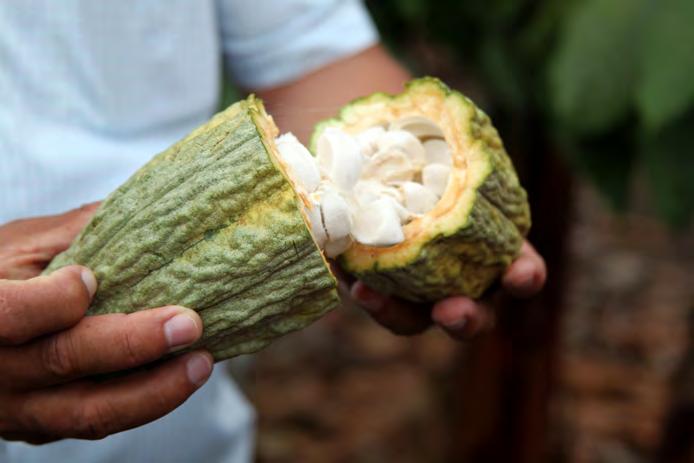
1 minute read
3. number of fairtrade certified cocoa producer organizations 2013-2017
Fairtrade’s work to highlight the issue of sustainable prices
In the wake of the collapse in cocoa market prices at the end of 2016, which still have not fully recovered, Fairtrade has taken a leading role in calling for more sustainable prices to be paid to cocoa farmers. This is part of a holistic solution to enable farmers to earn a living income, which in turn supports responsible and sustainable cocoa farming practices. We have developed Living Income Reference Prices for Ghana and Côte d’Ivoire as benchmarks, which some leading sustainable chocolate brands have chosen to pay. Local Fairtrade organizations in the global north, for instance Belgium and the UK, have run powerful consumer-facing campaigns to raise awareness about the challenges facing cocoa farmers.
In addition to advocacy, we have also strengthened our own interventions. Following an extensive global consultation process, we announced in December 2018 that, as of October 1st 2019, the mandatory Fairtrade Minimum Price for conventional cocoa would increase by 20 percent to US$2,400 per metric tonne, with additional increases for organic cocoa. The Fairtrade Premium for cocoa farmers and their cooperatives has also increased by 20 percent to US$240 per metric tonne. Fairtrade is the only scheme with a fixed Premium that must be paid directly to the cooperative with no deductions by any other supply chain actor.
Since then, in July 2019, the governments of Ghana and Côte d’Ivoire announced the introduction of a ‘Living Income Differential’ (LID). This will be paid in addition to the market price for all cocoa sold by producers in these countries effective from October 2020, with an associated guarantee of a minimum farm gate price of US$1,820. Fairtrade believes in sharing the benefits of trade more equally and we welcome the move by the two governments to make progress towards a living income for cocoa farmers.




